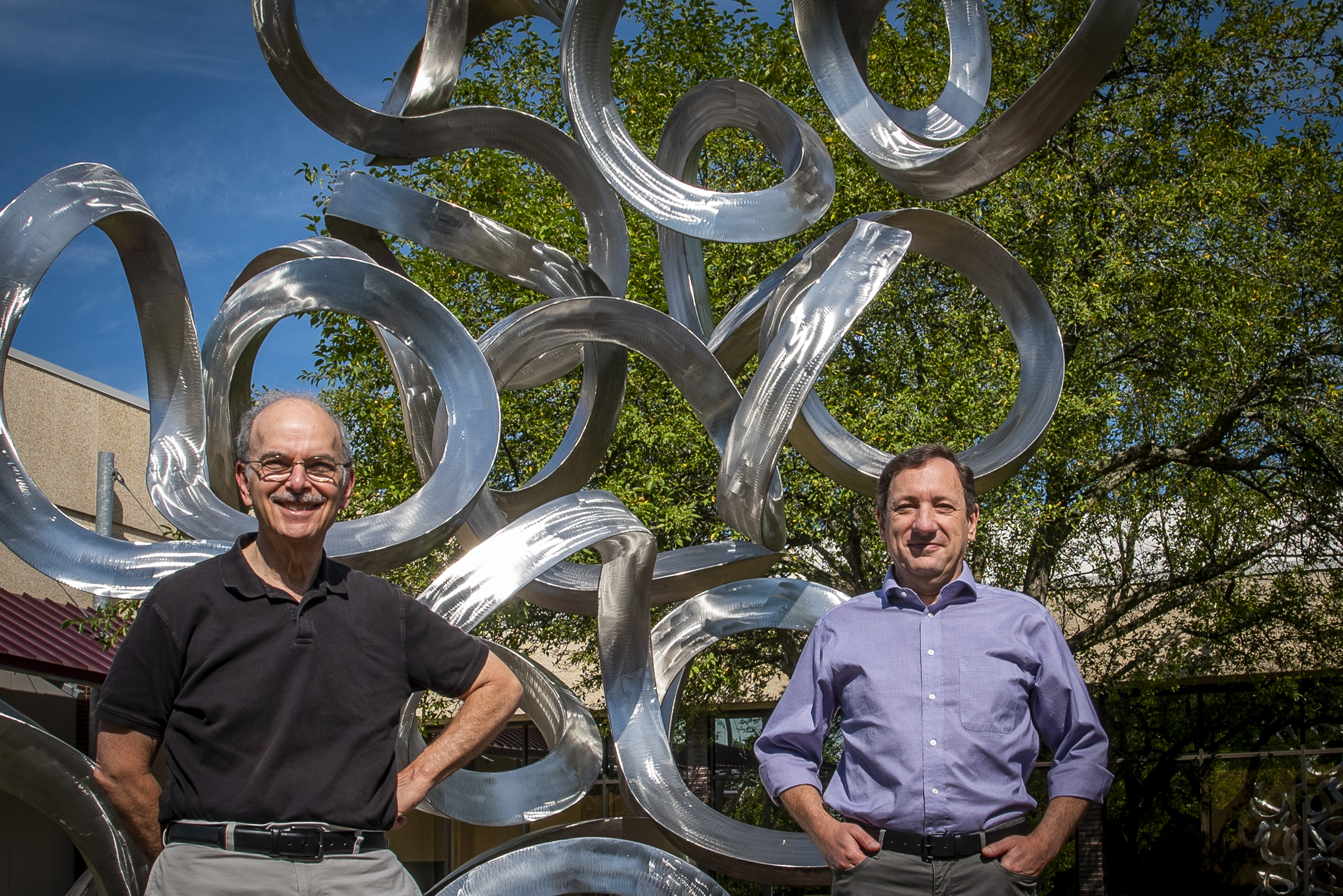The longtime leader of UConn School of Medicine’s Center for Cell Analysis and Modeling (CCAM), Dr. Leslie Loew, is stepping down as its director to turn his attention to his research. Dr. Pedro Mendes has just been named the next CCAM director.
“We express our heart-felt gratitude to Les for his outstanding service and contribution to the School of Medicine for more than two decades,” shared UConn School of Medicine Dean Dr. Bruce T. Liang. “Due to his extraordinary leadership, CCAM continues to thrive as a unique interdisciplinary research environment and holds exceptional promise as it develops in new directions.”
CCAM’s new director, Mendes, first joined UConn Health in 2014 as a professor of cell biology and a faculty member at the Center for Quantitative Medicine. He obtained a bachelor’s degree in biochemistry by the University of Lisbon, in his native Portugal, followed by a Ph.D. from the University of Wales, Aberystwyth. During his graduate and postdoctoral studies he developed the software Gepasi, for simulation of the dynamics of biochemical networks. He started his independent research as a group leader at the National Center for Genome Resources, in Santa Fe NM, followed by positions at the Virginia Bioinformatics Institute at Virginia Tech, and at the School of Computer Science at the University of Manchester (UK).
Mendes’ research has continued in the sphere of systems biology, with Gepasi and its successor COPASI being among the most widely used simulation software in that field. Mendes’ research has been supported by NIH and is the PI or MPI of three major NIH grants currently. He has authored more than 100 peer-reviewed publications, which have received over 22,000 citations. His interests in biological systems are broad, and recently have been focused on iron metabolism.
History of the Center for Cell Analysis and Modeling
In 1993, Loew convinced several faculty members to merge their expertise and equipment for live cell imaging methods to establish the then-named Center for Biomedical Imaging Technology (CBIT). Under his leadership, and with the support of the late Richard Berlin, then Associate Dean for Research, CBIT evolved into the current CCAM; it was named for Dr. Berlin shortly after his untimely passing.
“Trained as an organic chemist, Loew recognized the value in bringing together different disciplines toward a shared goal of understanding cellular mechanisms. He successfully recruited exceptional faculty to CCAM in cell biology, chemistry, optical engineering, math, physics, and computer engineering, creating a unique environment for multidisciplinary research within a medical school,” said Dean Liang.
Over the decades, CCAM has grown and been supported by Connecticut Innovations, Inc., the Office of Naval Research, DOD, NSF, and of course NIH. Loew served as principal investigator of an NIH Roadmap award and the P41 grant that funded CCAM as a National Biotechnology Resource for 22 years.
Under his leadership, the Center developed the Virtual Cell software for computational modeling in cell biology and ushered in a new era in cell biology. Thousands of scientists now use the Virtual Cell worldwide. Loew has also embraced service to the UConn scientific community and provided access to new technologies through the Microscopy User Facility and the High Performance Computing Center.
Loew’s own research has thrived within the center, both in the arena of chemistry, with his development of exciting new fluorescence probes for electrical activity in membranes that has led to a new Biotechnology company, Potentiometric Probes, LLC, and in the arena of cell biology, creating new understanding of cellular mechanisms using combined theoretical and experimental approaches.
In addition, during his tenure Loew developed a new graduate area of concentration, now named Systems Biology that provides unique multidisciplinary training to biomedical science Ph.D. students.
Loew was elected to the Connecticut Academy of Science and Engineering (CASE) in 2008, named by the Biophysical Society as editor-in-chief of the Biophysical Journal from 2012-2017, and received the Biophysical Society’s Distinguished Service Award in 2018.



